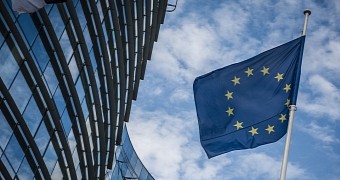UPDATE: Both Ireland and Apple have offered statements following EU's announcement to reveal that they will appeal the decision. You can read the statements at the end of the article. Original story below.
Apple must pay back no less than €13 billion ($14.5 billion) to Ireland after the company received illegal tax benefits from the country, according to a decision announced by the European Commission only a few minutes ago in a case that started in June 2014.
According to the Commission, Apple had received benefits from Ireland since 1991, and the company thus paid taxes that were significantly lower in the country, contributing to bigger profit that “did not correspond to economic reality.”
“Almost all sales profits recorded by the two companies were internally attributed to a ‘head office.’ The Commission's assessment showed that these ‘head offices’ existed only on paper and could not have generated such profits. These profits allocated to the ‘head offices’ were not subject to tax in any country under specific provisions of the Irish tax law, which are no longer in force,” a representative of the European Commission has announced.
The decision calls for Apple to pay back the unpaid taxes to Ireland for years 2003 to 2014, and according to the first estimates, the total value the company needs to return is €13 billion plus interest.
Tax dodging scheme
Using its subsidiary in Ireland, Apple has avoided paying taxes for products sold in the entire Europe, and this is a tax dodging scheme that many other tech companies, including Microsoft, have been using for many years.
But according to the European Commissions, paying more taxes in the countries where the products were sold would have contributed to a significantly lower amount of money to be returned by Apple.
“If other countries were to require Apple to pay more tax on profits of the two companies over the same period under their national taxation rules, this would reduce the amount to be recovered by Ireland,” the Commission said.
Apple turned to the so-called head offices that had no employees, according to the Commission, and that operate based on decisions made by directors that in most of the cases are executives working at Apple already. The activities of these head offices, however, generated profits in terms of interest.
Other tech giants to follow?
Apple isn’t the only company that’s using Irish subsidiaries to dodge taxes and sell products in Europe, and now many believe that the European Commission could turn their attention to other tech giants that do business on the Old Continent.
Certainly, the Apple case sets a precedent that makes it possible for the likes of Microsoft and Google to face similar decisions that would lead to these companies paying back billions of euros to Ireland for the benefits they received in the last decade in Europe.
UPDATE 1: Apple shares are already down 1.6 percent in premarket trade following EU's decision. A statement from the company is not yet available.
UPDATE 2: Irish authorities have issued a statement, saying that they'll appeal the decision. Below is the statement of Irish Finance Minister Michael Noonan"
"I disagree profoundly with the Commission. The decision leaves me with no choice but to seek cabinet approval to appeal. This is necessary to defend the integrity of our tax system; to provide tax certainty to business; and to challenge the encroachment of EU state aid rules into the sovereign member state competence of taxation."
UPDATE 3: Apple has also released a statement to reveal that it will appeal EU's decision and to explain that it's very confident it will win the case.
"The European Commission has launched an effort to rewrite Apple’s history in Europe, ignore Ireland’s tax laws and upend the international tax system in the process. The Commission’s case is not about how much Apple pays in taxes, it’s about which government collects the money. It will have a profound and harmful effect on investment and job creation in Europe."

 14 DAY TRIAL //
14 DAY TRIAL //